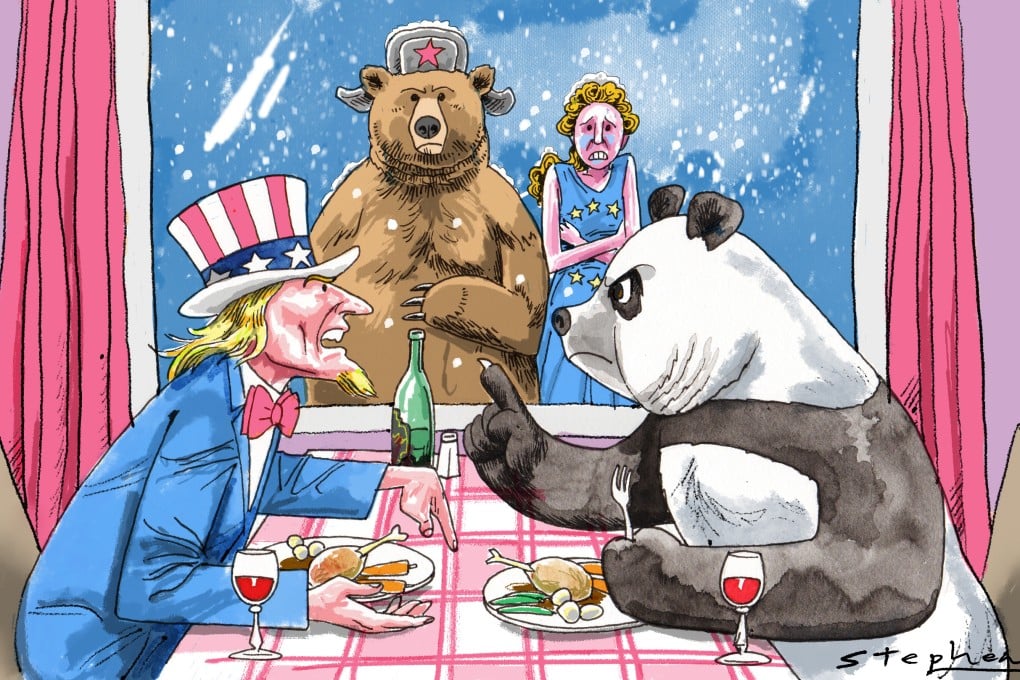Advertisement
Opinion | As US and China slug it out, will Europe and Russia be left out in the cold?
- The recent easing of Sino-US tensions may help Washington consolidate its grip on allies as it seeks to carve out a bipolar world order
- But, unlike in the Cold War, lesser powers in Europe and Russia are determined to remain at the table, not on the menu
Reading Time:3 minutes
Why you can trust SCMP
30

As 2022 draws to a close, there is an easing of US-China rivalry as the incumbent and emerging superpowers, a stalemate in Russia’s war in Ukraine, and recalculations being performed in the capitals of lesser powers between Washington and Beijing.
The latest example is Saudi Arabia, which while remaining one of America’s two cornerstone allies in the Middle East since the Cold War, recently received Chinese President Xi Jinping and signed with his delegation a slew of big business and investment agreements, but failed to announce the much-touted yuan-for-oil deals.
Against this background, we heard Kurt Campbell, the Biden administration’s Indo-Pacific coordinator, claim that, in the US-China contest, a lesson had been taught and China’s behaviour of having “taken on and challenged many countries simultaneously” has “backfired”.
Advertisement
“All of that suggests to me that the last thing the Chinese need right now is an openly hostile relationship with the United States,” Campbell said. “They want a degree of predictability and stability, and we seek that as well.”
In quoting Campbell, it’s possible to see just how universal America’s power and influence is in setting the pace of global geopolitics: following its stern foreign policy postulations, it adopts a conciliatory tone and the world is expected to follow suit, including its nominated chief adversary.
Advertisement
Formulation of the latest American foreign policy strategy was officially completed when the national security and national defence strategies were released in October. Introducing the defence strategy, Defence Secretary Lloyd Austin called China America’s “pacing challenge” and Russia an “immediate and sharp threat”. Echoing Secretary of State Antony Blinken’s words in May, Austin said China remained the one adversary with “both the intent to reshape the international order and, increasingly, the power to do so”.
Advertisement
Select Voice
Choose your listening speed
Get through articles 2x faster
1.25x
250 WPM
Slow
Average
Fast
1.25x
